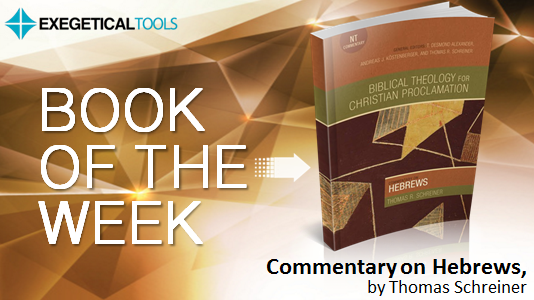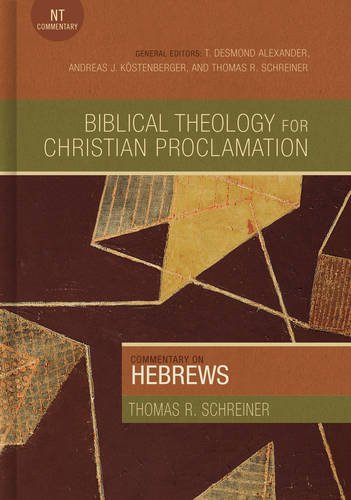
This new series focuses on a distinction made since J. P. Gabler in 1787: the distinction between biblical and systematic theology.
The major contribution of each volume … is a thorough discussion of the most important themes of the biblical book in relation to the canon as a whole. This format allows each contributor to ground biblical theology, as is proper, in an appropriate appraisal of the relevant historical and literary features of a particular book in Scripture while at the same time focusing on its major theological contribution to the entire Christian canon in the context of the larger salvation-historical metanarrative of Scripture. (xi)
Schreiner is well-suited to write a commentary focusing on biblical theology, having published his whole-Bible biblical theology in 2013. He has published numerous other works, including top-notch commentaries on Pauline texts such as Romans and Galatians as well as a Pauline theology and a New Testament theology.
Now he has tried his hand at Hebrews, a different sort of text, and perhaps the best volume to write in this series that focuses on biblical theology. The letter is filled with allusions to and citations of the OT and there are important biblical-theological themes such as land, kingship, priesthood, sacrifice, and more.
Each section begins with an outline, including sections before or after within the same division of the letter so the reader maintains an idea of where the present section lies in the letter. Schreiner then provides a translation of the text, followed by a section on context. These sections are all brief.
Then comes an exegesis of each verse. In that sense, the commentary is much like any other. It makes one wonder whether there is really a way to execute a series of biblical-theological commentaries, since commentaries are based on exegesis. So it is a strange mix between Zondervan’s Biblical Theology of the NT series and regular commentaries.
Thankfully the text prints Greek fonts rather than transliterations. The book itself is smaller than normal commentaries and so the page count makes it seem longer than it really is (539 pages). One could actually read through this entire commentary in a week in order to get an overview of the exegesis and theological themes throughout Hebrews before starting to preach it.
Tom Schreiner wants to help you bring biblical theology to the pulpit, starting with Hebrews! Share on XThe brevity of the commentary means three things. First, it is nowhere as near in-depth as other commentaries, such as those by Attridge and Lane. Second, however, there is a smooth exposition that will benefit beginning students working on research and pastors who need a brief and clear exposition from a scholar who understands the academic issues involved. Lastly, the price of the commentary is a bit lower than the other major commentaries, coming in at around $28 right now on Amazon. This would definitely be a good addition to anyone’s library–student and pastor especially, but scholars will also likely be consulting this volume.
Find it here on Amazon.
If you’re planning on preaching or teaching Hebrews, check out our “preaching syllabus” to help you prepare.

